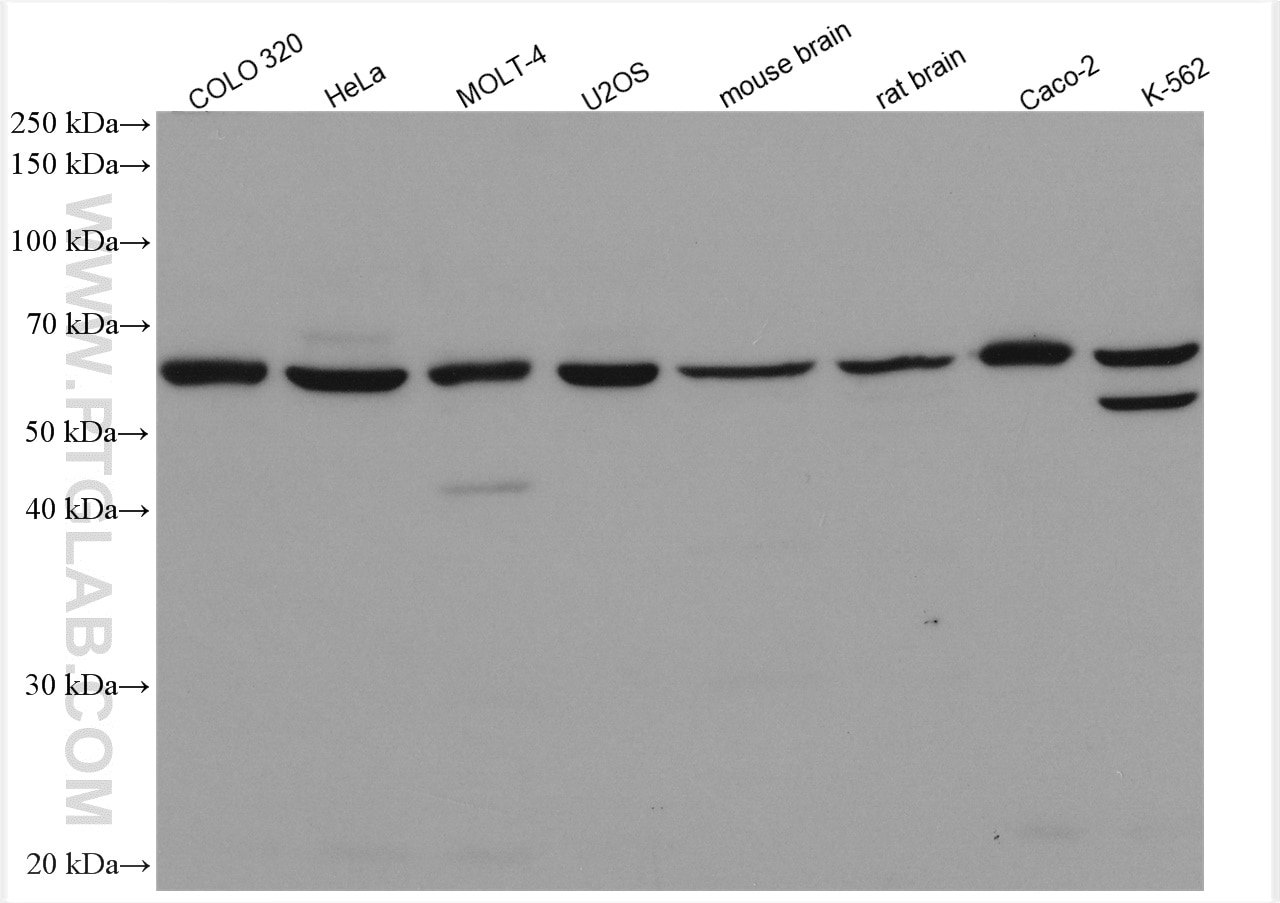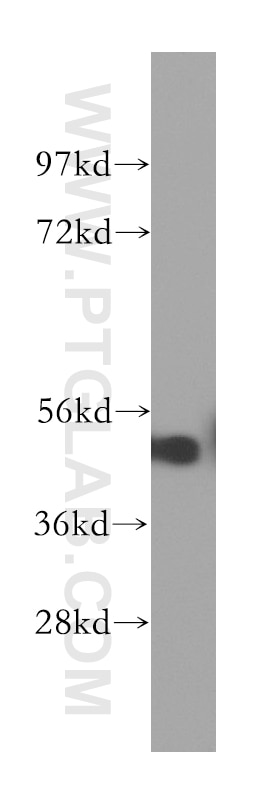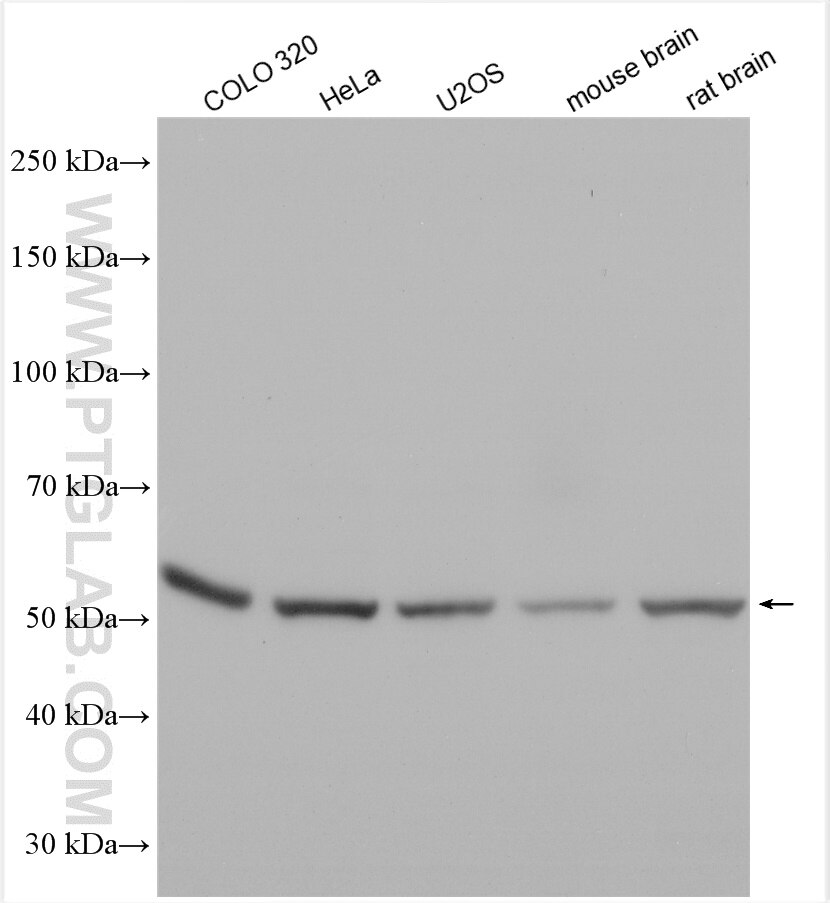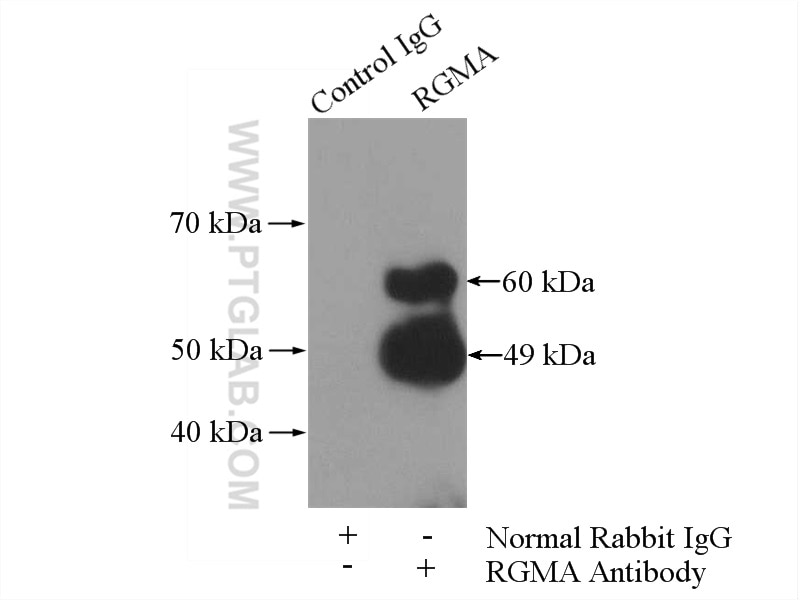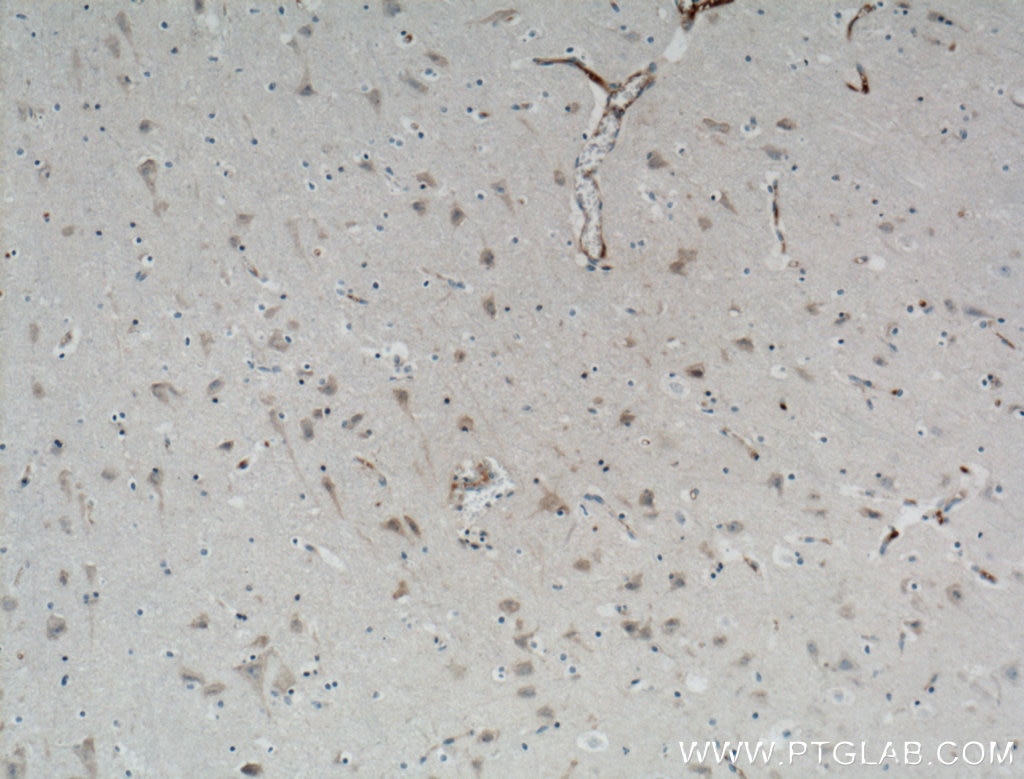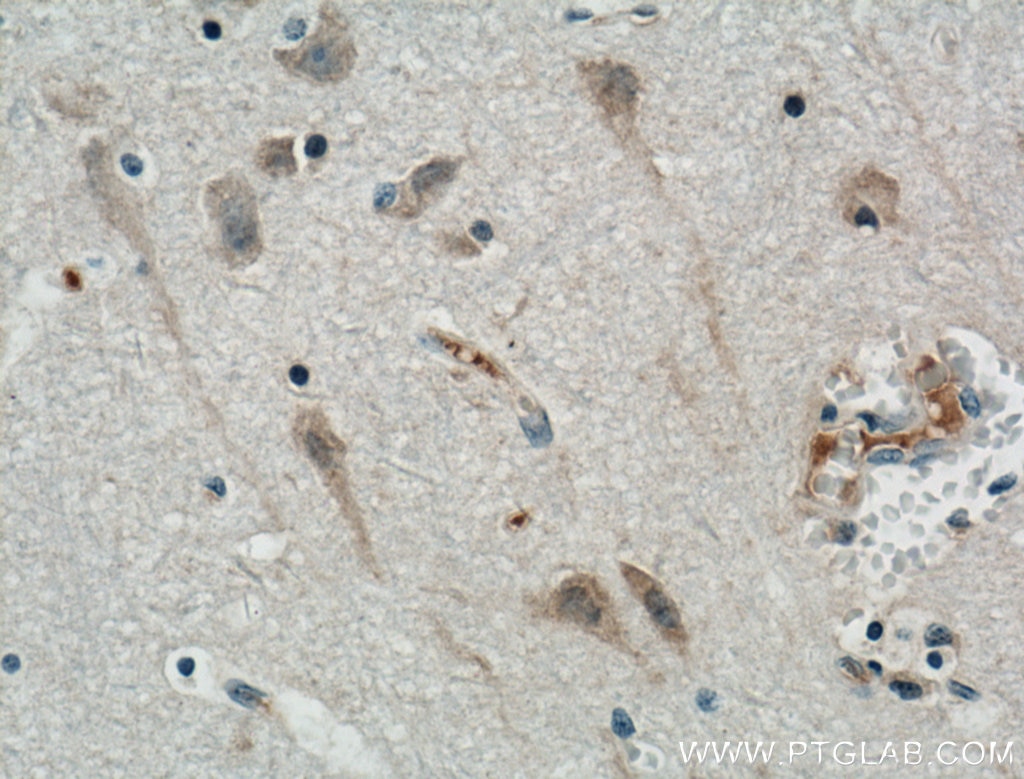- Featured Product
- KD/KO Validated
RGMA Polyklonaler Antikörper
RGMA Polyklonal Antikörper für WB, IP, IHC, ELISA
Wirt / Isotyp
Kaninchen / IgG
Getestete Reaktivität
human, Maus, Ratte
Anwendung
WB, IP, IHC, CoIP, ELISA
Konjugation
Unkonjugiert
Kat-Nr. : 12387-1-AP
Synonyme
Galerie der Validierungsdaten
Geprüfte Anwendungen
| Erfolgreiche Detektion in WB | COLO 320-Zellen, Caco-2-Zellen, HeLa-Zellen, K-562-Zellen, Maushirngewebe, Maushodengewebe, MOLT-4-Zellen, Rattenhirngewebe, U2OS-Zellen |
| Erfolgreiche IP | Maushodengewebe |
| Erfolgreiche Detektion in IHC | humanes Hirngewebe Hinweis: Antigendemaskierung mit TE-Puffer pH 9,0 empfohlen. (*) Wahlweise kann die Antigendemaskierung auch mit Citratpuffer pH 6,0 erfolgen. |
Empfohlene Verdünnung
| Anwendung | Verdünnung |
|---|---|
| Western Blot (WB) | WB : 1:500-1:1000 |
| Immunpräzipitation (IP) | IP : 0.5-4.0 ug for 1.0-3.0 mg of total protein lysate |
| Immunhistochemie (IHC) | IHC : 1:50-1:500 |
| It is recommended that this reagent should be titrated in each testing system to obtain optimal results. | |
| Sample-dependent, check data in validation data gallery | |
Veröffentlichte Anwendungen
| KD/KO | See 1 publications below |
| WB | See 1 publications below |
| CoIP | See 1 publications below |
Produktinformation
12387-1-AP bindet in WB, IP, IHC, CoIP, ELISA RGMA und zeigt Reaktivität mit human, Maus, Ratten
| Getestete Reaktivität | human, Maus, Ratte |
| In Publikationen genannte Reaktivität | Maus, Ratte |
| Wirt / Isotyp | Kaninchen / IgG |
| Klonalität | Polyklonal |
| Typ | Antikörper |
| Immunogen | RGMA fusion protein Ag3058 |
| Vollständiger Name | RGM domain family, member A |
| Berechnetes Molekulargewicht | 450 aa, 49 kDa |
| Beobachtetes Molekulargewicht | 49 kDa |
| GenBank-Zugangsnummer | BC015886 |
| Gene symbol | RGMA |
| Gene ID (NCBI) | 56963 |
| Konjugation | Unkonjugiert |
| Form | Liquid |
| Reinigungsmethode | Antigen-Affinitätsreinigung |
| Lagerungspuffer | PBS mit 0.02% Natriumazid und 50% Glycerin pH 7.3. |
| Lagerungsbedingungen | Bei -20°C lagern. Nach dem Versand ein Jahr lang stabil Aliquotieren ist bei -20oC Lagerung nicht notwendig. 20ul Größen enthalten 0,1% BSA. |
Hintergrundinformationen
RGMA, also named as RGM, is a member of the repulsive guidance molecule (RGM) family that performs several functions in the developing and adult nervous system. It regulates cephalic neural tube closure, inhibits neurite outgrowth and cortical neuron branching, and the formation of mature synapses. RGMA binding to its receptor NEO1/neogenin induces activation of RHOA-ROCK1/Rho-kinase signaling pathway through UNC5B-ARHGEF12/LARG-PTK2 cascade, leading to collapse of the neuronal growth cone and neurite outgrowth inhibition. Furthermore, RGMA binding to NEO1/neogenin leads to HRAS inactivation by influencing HRAS1-PTK2-AKT1 pathway. It also functions as a bone morphogenetic protein (BMP) coreceptor that may signal through SMAD1, SMAD5, and SMAD8. RGMA is a molecular target for neuroprotection in retinal pathologies(PMID: 20457227). the frequent genetic and epigenetic inactivation of RGMA in CRCs and adenomas along with its in vitro function collectively support its role as a tumor suppressor in colon cells(PMID:19303019 ). There're some different MW in WB detection, 30 kDa mature form, 47-50 kDa isoforms and 60 kDa Glycosylated form.
Protokolle
| Produktspezifische Protokolle | |
|---|---|
| WB protocol for RGMA antibody 12387-1-AP | Protokoll herunterladen |
| IHC protocol for RGMA antibody 12387-1-AP | Protokoll herunterladen |
| IP protocol for RGMA antibody 12387-1-AP | Protokoll herunterladen |
| Standard-Protokolle | |
|---|---|
| Klicken Sie hier, um unsere Standardprotokolle anzuzeigen |
Publikationen
| Species | Application | Title |
|---|---|---|
Brain Res Bull Adenoviral Vector-Induced Silencing of RGMa Attenuates Blood-Brain Barrier Dysfunction in a Rat Model of MCAO/Reperfusion.
| ||
Sci Adv RGMa collapses the neuronal actin barrier against disease-implicated protein and exacerbates ALS |
